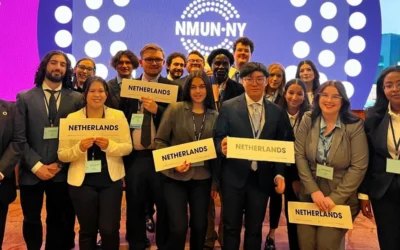Me too. Most of us have come across this simple yet powerful phrase in the past few months. Founded by activist Tarana Burke 10 years ago and having gone viral in 2017, after American actress Alyssa Milano called on survivors of sexual assault and harassment to respond with the words #MeToo on Twitter, it is a well-known movement dedicated to breaking the silence on sexual assault. In little more than a week, the movement rippled through Hollywood, professional sports, 85 countries around the world — and post-secondary institutions.
University is meant to be a time that allows you to define yourself, a time of opportunity and forming connections. And yet for many women, an experience that is meant to be one of the best times in their life can become tainted with fear and trauma. The disturbing reality of rape culture on university campuses is very much alive and thriving — yet oftentimes not talked about enough.
In a 2013, University Students Offering Leadership for Violence Elimination (U-SOLVE), a joint initiative between MacEwan University and the Sexual Assault Centre of Edmonton, conducted a survey of nearly 500 MacEwan students, of which 75 per cent reported receiving “unwanted sexual attention.” Nearly a third of those experiences occurred on campus. While MacEwan has adopted a policy that “prohibits all acts of sexual violence,” the symptoms of rape culture are rooted in many normalized behaviours and attitudes that our culture accepts or even endorses. These symptoms seep into everyday conversations, dating interactions, jokes, and fundamental beliefs.
Indeed, the same survey of MacEwan students revealed that one in five respondents believe that “victims invite violence if they wear revealing clothes, are out late, or use drugs or alcohol.” If these widespread rape myths aren’t surprising, neither should be the overwhelming number of #MeToo posts on Twitter, which hit 1.7 million tweets by Oct. 24. This pattern of shame and victim-blaming associated with sexual violence is what fuelled the #MeToo movement, which is dedicated to giving the victims a voice and breaking the existing stigma.
At MacEwan, Sexual Violence Awareness Week occurred one day after the #MeToo movement broke. This timing contributed to the intensity of the conversation, according to Roxanne Runyon, MacEwan University’s sexual violence prevention and education coordinator.
“I got a sense that people were then, and are still now, looking for ways to find out more, to contribute to social change. And sometimes they were looking for support. The ‘Me Too’ movement is bringing up a lot for people, whether it’s their own experience or the desire to contribute to change,” Runyon says.
However, as terrifying as it might be for some to say “#MeToo” on social media or to family and friends, speaking up on campus presents an entirely separate set of challenges. When academic achievement and a degree are at stake, coming forward may seem difficult, and in some cases almost impossible.
But Runyon assures students that, at MacEwan, the needs and the healing process of a survivor always come first.
“We always start from a place of belief,” Runyon says. “We offer a range of supports that can be put in place for survivors of sexual violence on campus, including academic or work accommodations, counselling, and referrals to community services and resources. We allow survivors to steer the process as much as possible. We do not want anyone to get left behind or fall through the cracks after what can be a traumatic experience.”
For those wishing to report sexual violence on campus, MacEwan offers several routes. Students or staff can report through the school’s sexual violence response coordinator or Campus Security Services. MacEwan also offers a third-party reporting line that allows callers to file reports confidentially and “provide as little or as much information as they want,” Runyon says.
At MacEwan, reports of sexual violence are received and investigated by the Sexual Violence Response Team, which includes the executive director of Student Affairs, the assistant vice-president of Human Resources, the director of Security Services, and MacEwan’s vice-president of governance for diversity and inclusion, who also serves as general counsel for the university.
The decision to file a complaint is left entirely up to the survivor, as the response team’s primary goal is to provide unconditional support and options based on that individual’s needs.
“We are committed, as much as possible, to being survivor-centered. So if the person who experienced sexual violence at some point decides not to go through with (the investigation) anymore … or to take a step back, or does not want to share certain kinds of information, we try to honour that decision,” Runyon explains.
Support for disclosures of sexual violence is vital, and movements like #MeToo help give survivors a voice. But bigger than this is the push to create a culture in which #MeToo experiences are no longer common enough that they require a hashtag. As the discussion turns to preventing sexual violence, some institutions have begun to recognize the need to promote a culture of consent and belief. For MacEwan, this academic year marks several milestones in its approach to sexual violence and consent.
In 2017, the university held an interactive workshop — A to B: From Rape Culture to Consent Culture — which offered sexual violence prevention training to masculine-identified attendees. Hosted by Tuval Dinner Nafshi of the Alberta Council of Women’s Shelters and Derek Warwick with Sexual Assault Centre of Edmonton, the workshop addressed issues of rape culture in Canada, toxic masculinity, and redefining consent.
“We really want people to think about how they impact other people — how you want people to feel after you have been with them,” Dinner Nafshi says. “Ideally, most of us want people to feel better than they did before.”
“Enthusiastic consent is what we want (everyone)to be aiming for.”
The talk emphasized the importance of communicating consent, and the problematic way in which popular culture portrays consent — or rather, the complete absence of such portrayals.
“One of the most challenging parts of this is the communication aspect,” explained Dinner Nafshi. “Most of us don’t learn what that communication should look and sound like. If you watch any movie with a romantic component in it, usually at the point when communication would happen, a great song comes on and you don’t hear anyone saying anything. It just fades out as they wake up the next morning.”
This type of ambiguity, often seen in films, is frequently romanticized and glorified, further contributing to the myths surrounding consent such as that it could “ruin the mood.” Rather, Dinner Nafshi argues that concern over being rejected should be secondary to acknowledging how an encounter may cause harm.
“What’s required of us is to use our words, and that’s vulnerable and puts us open to rejection, as we’re putting ourselves out there,” Dinner Nafshi says. “But it’s important to think about how awkward it is to say, ‘Do you want this?’ or ‘Is this okay?’ versus not saying anything, and then not knowing afterwards if you have harmed someone in a way that might take them a lifetime to heal from.”
Currently, there is also ongoing discussion at MacEwan, as well as other universities across Canada, about whether to release the statistics of reported cases of sexual violence. Numbers alone can be misleading. If the number of reported cases at MacEwan is high, for instance, some might interpret this as an indication that people feel safe coming forward here. Others, however, might interpret this as a sign that MacEwan has had a spike in incidents of sexual violence overall, Runyon says.
Those who are looking to get involved in MacEwan policy changes and discussions on sexual assault prevention will get an opportunity to do so this semester: the university is seeking student input as it undergoes the process of reviewing its policy on sexual violence.
According to Runyon, students and staff will get the chance to participate in focus groups and an open consultation period this spring, when they can share their insight and suggestions on MacEwan’s approach to sexual violence policy and prevention. More information about the initiative can be found on the MacEwan Office of Sexual Violence Prevention and Education Facebook page.
Graphics by Kia Valdez Bettcher.




0 Comments